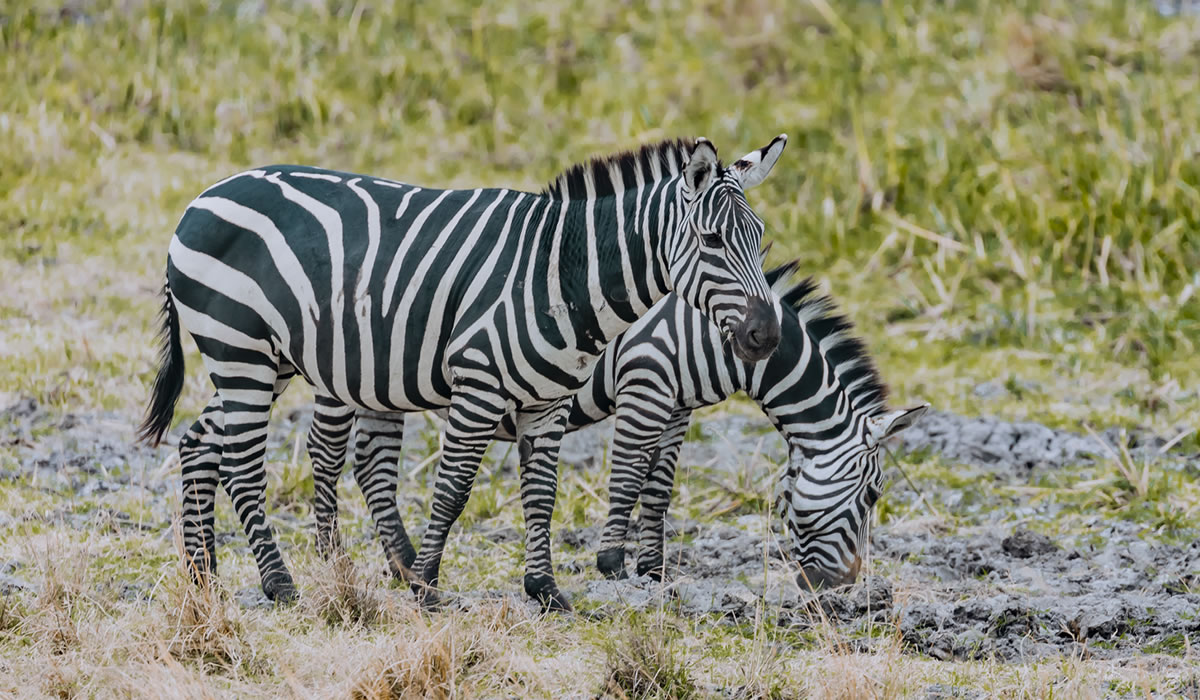Akagera National Park, located in the eastern part of Rwanda, is one of Africa’s most remarkable conservation success stories. Spanning over 1,122 square kilometers, it is a stunning mix of savannah, woodland, wetlands, and lakes, making it one of the most diverse ecosystems in the region. The park is named after the Kagera River, which flows along its eastern boundary and feeds into a network of lakes, including Lake Ihema, the largest in the park. Akagera is the only protected savannah environment in Rwanda and is home to the Big Five, numerous bird species, and a variety of other wildlife.

History of Akagera National Park
Established in 1934 by the Belgian colonial government, Akagera National Park was once an expansive haven for wildlife, covering nearly 2,500 square kilometers. However, after the Rwandan Genocide in 1994, returning refugees settled in the area, leading to encroachments, poaching, and habitat destruction. As a result, the park lost much of its wildlife, including its lion and rhino populations.
In 2010, the Rwandan government partnered with African Parks, a non-profit conservation organization, to rehabilitate the park. This collaboration led to improved infrastructure, anti-poaching measures, community involvement, and successful reintroductions of lions in 2015 and black rhinos in 2017 and 2019. Today, Akagera is a thriving ecosystem and a premier destination for wildlife enthusiasts.
Geography and Ecosystem
Akagera National Park is characterized by a diverse landscape that includes vast plains, rolling hills, swamps, lakes, and woodlands. The western part of the park consists of acacia woodlands and open grasslands, reminiscent of the East African savannah, while the eastern section features extensive wetlands, including a series of lakes and the Akagera River.
This varied topography supports a range of habitats, making the park home to an incredible variety of flora and fauna. The wetlands in Akagera form the largest protected wetland in Central Africa, supporting aquatic life and migratory birds. The combination of different ecosystems makes Akagera a unique destination for ecological tourism.
Wildlife in Akagera
Akagera National Park is home to a spectacular array of wildlife, including the famed Big Five—lion, elephant, buffalo, leopard, and rhinoceros. Other notable species include giraffes, zebras, hippos, crocodiles, warthogs, antelopes, and hyenas.
- Mammals: The park boasts over 8,000 large animals, with key species such as the Maasai giraffe, impala, topi, eland, and bushbuck. The reintroduction of rhinos and lions has restored the ecological balance, making Akagera a true Big Five safari destination.
- Birdlife: With more than 500 bird species recorded, Akagera is a paradise for birdwatchers. The park is home to rare and endemic species, such as the shoebill stork, papyrus gonolek, and African fish eagle. The lakes and wetlands provide ideal conditions for waterbirds, including pelicans, herons, and kingfishers.
- Aquatic Life: Akagera’s lakes and rivers support a rich aquatic ecosystem, teeming with hippos, Nile crocodiles, and various fish species. Lake Ihema, in particular, offers boat safaris that allow visitors to observe these aquatic creatures up close.
Conservation and Community Involvement
Since the collaboration with African Parks, Akagera has undergone a remarkable transformation. Conservation efforts include increased security through ranger patrols, surveillance technology, and community engagement to prevent poaching.
One of the most significant aspects of Akagera’s conservation strategy is local community involvement. Over 30,000 people from nearby villages benefit from tourism revenue, employment, and educational programs. The park authorities have also implemented sustainable initiatives such as beekeeping, fish farming, and eco-tourism projects to provide alternative livelihoods for local communities.
Tourist Activities in Akagera
Akagera National Park offers a wide range of activities that cater to nature lovers, adventure seekers, and wildlife enthusiasts. Some of the most popular activities include:
- Game Drives: Guided or self-drive safaris allow visitors to explore the park’s diverse landscapes and encounter a variety of wildlife, including the Big Five.
- Boat Safaris: A boat trip on Lake Ihema provides a unique opportunity to view hippos, crocodiles, and waterbirds up close.
- Birdwatching: With its rich avian diversity, Akagera is a prime location for birdwatching, especially in the wetlands and lake regions.
- Fishing: Lake Shakani offers sport fishing opportunities, where visitors can catch species like tilapia and catfish.
- Cultural Experiences: Visitors can engage with local communities to learn about Rwandan traditions, including storytelling, traditional dances, and crafts.
- Camping and Lodging: Akagera offers a range of accommodations, from luxury lodges to basic camping sites, allowing visitors to experience the park in different ways.
Best Time to Visit
The best time to visit Akagera National Park depends on personal preferences and the type of wildlife experience one seeks. The dry season, from June to September, is ideal for game viewing as animals gather around water sources. The wet season, from March to May and October to November, offers lush landscapes, fewer tourists, and excellent birdwatching opportunities.
How to Get There
Akagera National Park is easily accessible from Rwanda’s capital, Kigali. The park is approximately 110 kilometers from Kigali, a drive of about 2.5 hours. Visitors can travel by private vehicle, tour operator, or even chartered flights for a quicker journey. The park’s main entrance is at the southern section near the town of Kayonza.
Akagera National Park stands as a testament to Rwanda’s commitment to conservation and sustainable tourism. Once on the brink of collapse, it has been revived into a flourishing wildlife sanctuary that attracts visitors from around the world. With its diverse ecosystems, remarkable wildlife, and immersive safari experiences, Akagera is a must-visit destination for nature lovers and adventure seekers. Whether you are looking for thrilling game drives, serene boat safaris, or cultural interactions, Akagera offers an unforgettable African wilderness experience.

